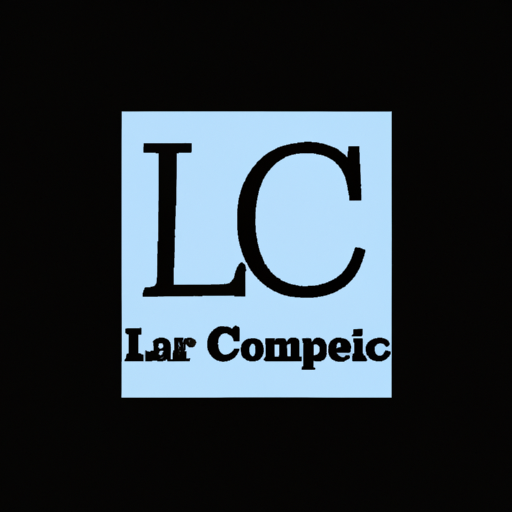-
Attorney at Law
- Introduction
- Exploring the Tax Implications of Valuation Discounts On The Transfer Of a Business
- Common Mistakes to Avoid When Applying Valuation Discounts On The Transfer Of a Business
- The Pros and Cons of Utilizing Valuation Discounts On The Transfer Of a Business
- How to Calculate Valuation Discounts On The Transfer Of a Business
- Understanding Valuation Discounts On The Transfer Of a Business: What You Need to Know
“Maximize Your Business Value with Valuation Discounts!”
Introduction
Valuation discounts on the transfer of a business are a common tool used by business owners to reduce the value of their business for tax purposes. These discounts are based on the fact that the value of a business is often greater than the sum of its parts. By applying a discount to the value of the business, the owner can reduce the amount of taxes they owe on the sale of the business. This article will discuss the different types of valuation discounts, how they are calculated, and the potential tax implications of using them.
Exploring the Tax Implications of Valuation Discounts On The Transfer Of a Business
Valuation discounts are a common tool used to reduce the value of a business for tax purposes. These discounts can be used to reduce the taxable value of a business when transferring ownership or when gifting a business to family members. While valuation discounts can be a useful tool for reducing taxes, it is important to understand the tax implications of using them.
When transferring ownership of a business, the Internal Revenue Service (IRS) requires that the value of the business be reported as the fair market value. This means that the value of the business must be reported at its full value, without any discounts. However, if the business is being transferred to a family member, the IRS allows for the use of valuation discounts. These discounts can be used to reduce the taxable value of the business, resulting in a lower tax liability.
Valuation discounts are typically based on the size of the business, the type of business, and the relationship between the buyer and seller. For example, a family-owned business may be eligible for a discount due to the close relationship between the buyer and seller. Similarly, a small business may be eligible for a discount due to its size.
When using valuation discounts, it is important to understand the tax implications. The IRS requires that the discounted value of the business be reported as the fair market value. This means that the discounted value must be reported as the full value of the business, without any discounts. Additionally, the IRS requires that the discounted value be reported on the tax return of the seller. This means that the seller must pay taxes on the discounted value of the business, even though they may have received less money for the sale.
In addition to the tax implications, it is important to understand the legal implications of using valuation discounts. The IRS requires that the discounted value of the business be reported as the fair market value. This means that the discounted value must be reported as the full value of the business, without any discounts. Additionally, the IRS requires that the discounted value be reported on the tax return of the seller. This means that the seller must pay taxes on the discounted value of the business, even though they may have received less money for the sale.
Valuation discounts can be a useful tool for reducing taxes when transferring ownership of a business. However, it is important to understand the tax and legal implications of using them. By understanding the implications of using valuation discounts, businesses can ensure that they are taking advantage of all available tax savings opportunities.
Common Mistakes to Avoid When Applying Valuation Discounts On The Transfer Of a Business
When applying valuation discounts on the transfer of a business, it is important to be aware of the common mistakes that can be made. Here are some of the most common mistakes to avoid when applying valuation discounts:
1. Not considering the impact of the discounts on the overall value of the business: Valuation discounts can significantly reduce the value of a business, so it is important to consider the impact of the discounts on the overall value of the business before applying them.
2. Not considering the tax implications of the discounts: Valuation discounts can have a significant impact on the tax implications of the transfer of a business. It is important to consider the tax implications of the discounts before applying them.
3. Not considering the impact of the discounts on the liquidity of the business: Valuation discounts can reduce the liquidity of a business, so it is important to consider the impact of the discounts on the liquidity of the business before applying them.
4. Not considering the impact of the discounts on the transferability of the business: Valuation discounts can reduce the transferability of a business, so it is important to consider the impact of the discounts on the transferability of the business before applying them.
5. Not considering the impact of the discounts on the marketability of the business: Valuation discounts can reduce the marketability of a business, so it is important to consider the impact of the discounts on the marketability of the business before applying them.
By avoiding these common mistakes when applying valuation discounts on the transfer of a business, you can ensure that the value of the business is not significantly reduced and that the tax implications, liquidity, transferability, and marketability of the business are not adversely affected.
The Pros and Cons of Utilizing Valuation Discounts On The Transfer Of a Business
Valuation discounts are a common tool used to reduce the value of a business when transferring ownership. These discounts are typically used to account for the lack of control and marketability of the business. While valuation discounts can be beneficial in certain situations, they can also have drawbacks that should be considered before utilizing them.
Pros
The primary benefit of utilizing valuation discounts is that they can significantly reduce the value of a business when transferring ownership. This can be beneficial for both the buyer and seller, as it can make the transaction more affordable for the buyer and increase the seller’s return on investment. Additionally, valuation discounts can be used to reduce the amount of taxes owed on the sale of the business.
Cons
The primary drawback of utilizing valuation discounts is that they can be difficult to justify to the IRS. The IRS may challenge the use of valuation discounts if they believe that the discounts are not reasonable or necessary. Additionally, valuation discounts can reduce the amount of money that the seller receives from the sale of the business, which can be a significant disadvantage.
In conclusion, valuation discounts can be a useful tool for reducing the value of a business when transferring ownership. However, it is important to consider the potential drawbacks before utilizing them, as they can be difficult to justify to the IRS and can reduce the amount of money that the seller receives from the sale.
How to Calculate Valuation Discounts On The Transfer Of a Business
Valuation discounts are an important consideration when transferring a business. These discounts can significantly reduce the value of a business, so it is important to understand how they are calculated.
Valuation discounts are typically applied to the value of a business when the business is transferred to a new owner. These discounts are based on the fact that the new owner will not have the same control over the business as the original owner. This lack of control can reduce the value of the business, and the discount is intended to reflect this.
The most common type of valuation discount is the minority discount. This discount is applied when the new owner will not have a controlling interest in the business. The size of the discount is based on the percentage of ownership the new owner will have. The larger the minority interest, the larger the discount.
Another type of valuation discount is the marketability discount. This discount is applied when the new owner will not be able to easily sell their interest in the business. This could be due to restrictions on the transfer of ownership, or because the business is not publicly traded. The size of the discount is based on the difficulty of selling the interest.
Finally, the control premium discount is applied when the new owner will not have the same level of control over the business as the original owner. This discount is based on the fact that the new owner will not be able to make decisions about the business in the same way as the original owner.
When calculating valuation discounts, it is important to consider all of the factors that could affect the value of the business. This includes the size of the minority interest, the difficulty of selling the interest, and the level of control the new owner will have. By taking all of these factors into account, it is possible to accurately calculate the valuation discounts that should be applied to the transfer of a business.
Understanding Valuation Discounts On The Transfer Of a Business: What You Need to Know
Valuation discounts are an important consideration when transferring a business. These discounts can significantly reduce the value of a business, and it is important to understand how they work and how they can affect the transfer of a business.
Valuation discounts are applied to the value of a business when it is transferred from one owner to another. These discounts are based on the fact that the buyer is taking on a certain amount of risk when they purchase a business. The discounts are applied to account for the fact that the buyer may not be able to realize the full value of the business due to the risks associated with the purchase.
The most common type of valuation discount is the minority discount. This discount is applied when the buyer is purchasing a minority stake in the business. The discount is applied to account for the fact that the buyer will not have control over the business and may not be able to realize the full value of the business.
Another type of valuation discount is the marketability discount. This discount is applied when the buyer is purchasing a business that is not easily transferable or liquid. The discount is applied to account for the fact that the buyer may not be able to easily sell the business in the future.
Finally, the control premium discount is applied when the buyer is purchasing a controlling stake in the business. This discount is applied to account for the fact that the buyer will have control over the business and may be able to realize a higher return on their investment.
When transferring a business, it is important to understand how valuation discounts can affect the value of the business. These discounts can significantly reduce the value of the business, and it is important to understand how they work and how they can affect the transfer of a business. By understanding these discounts, buyers and sellers can ensure that they are getting the best possible deal when transferring a business.
Areas We Serve
We serve individuals and businesses in the following locations:
Salt Lake City Utah
West Valley City Utah
Provo Utah
West Jordan Utah
Orem Utah
Sandy Utah
Ogden Utah
St. George Utah
Layton Utah
South Jordan Utah
Lehi Utah
Millcreek Utah
Taylorsville Utah
Logan Utah
Murray Utah
Draper Utah
Bountiful Utah
Riverton Utah
Herriman Utah
Spanish Fork Utah
Roy Utah
Pleasant Grove Utah
Kearns Utah
Tooele Utah
Cottonwood Heights Utah
Midvale Utah
Springville Utah
Eagle Mountain Utah
Cedar City Utah
Kaysville Utah
Clearfield Utah
Holladay Utah
American Fork Utah
Syracuse Utah
Saratoga Springs Utah
Magna Utah
Washington Utah
South Salt Lake Utah
Farmington Utah
Clinton Utah
North Salt Lake Utah
Payson Utah
North Ogden Utah
Brigham City Utah
Highland Utah
Centerville Utah
Hurricane Utah
South Ogden Utah
Heber Utah
West Haven Utah
Bluffdale Utah
Santaquin Utah
Smithfield Utah
Woods Cross Utah
Grantsville Utah
Lindon Utah
North Logan Utah
West Point Utah
Vernal Utah
Alpine Utah
Cedar Hills Utah
Pleasant View Utah
Mapleton Utah
Stansbury Par Utah
Washington Terrace Utah
Riverdale Utah
Hooper Utah
Tremonton Utah
Ivins Utah
Park City Utah
Price Utah
Hyrum Utah
Summit Park Utah
Salem Utah
Richfield Utah
Santa Clara Utah
Providence Utah
South Weber Utah
Vineyard Utah
Ephraim Utah
Roosevelt Utah
Farr West Utah
Plain City Utah
Nibley Utah
Enoch Utah
Harrisville Utah
Snyderville Utah
Fruit Heights Utah
Nephi Utah
White City Utah
West Bountiful Utah
Sunset Utah
Moab Utah
Midway Utah
Perry Utah
Kanab Utah
Hyde Park Utah
Silver Summit Utah
La Verkin Utah
Morgan Utah
Alpine UT Business Lawyer Consultation
When you need help from an attorney for business in Alpine, call Jeremy D. Eveland, MBA, JD (801) 613-1472 for a consultation.
Jeremy Eveland
17 North State Street
Lindon UT 84042
(801) 613-1472
Related Posts
Business Lawyer Centerville Utah
Shareholder Agreements in Utah
Business Lawyer Hurricane Utah
Business Lawyer South Ogden Utah
Last Will and Testament Lawyer
Business Lawyer Heber City Utah
Business Lawyer Hurricane Utah
Business Lawyer West Haven Utah
Do I Need A License To Start A Business?
Business Lawyer Bluffdale Utah
Business Lawyer Santaquin Utah
Legal Implications of Cryptocurrency in Business Transactions
Business Lawyer Smithfield Utah
Structuring A Flow Through Entity
Business Lawyer Woods Cross Utah
Business Lawyer Grantsville Utah
Structuring Turn Around Investments
Business Lawyer North Logan Utah
How Many Types of Business Law Are There?




















